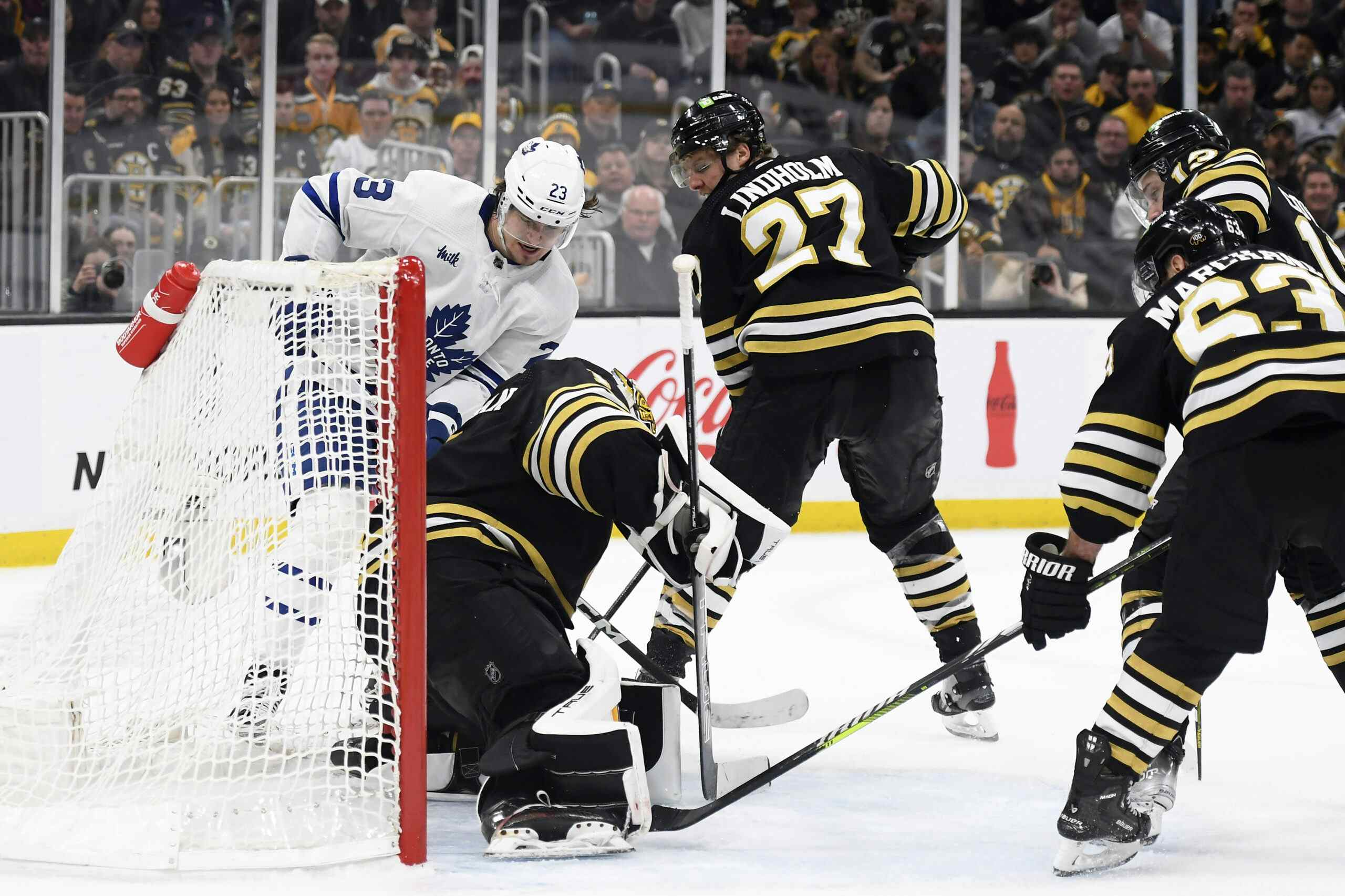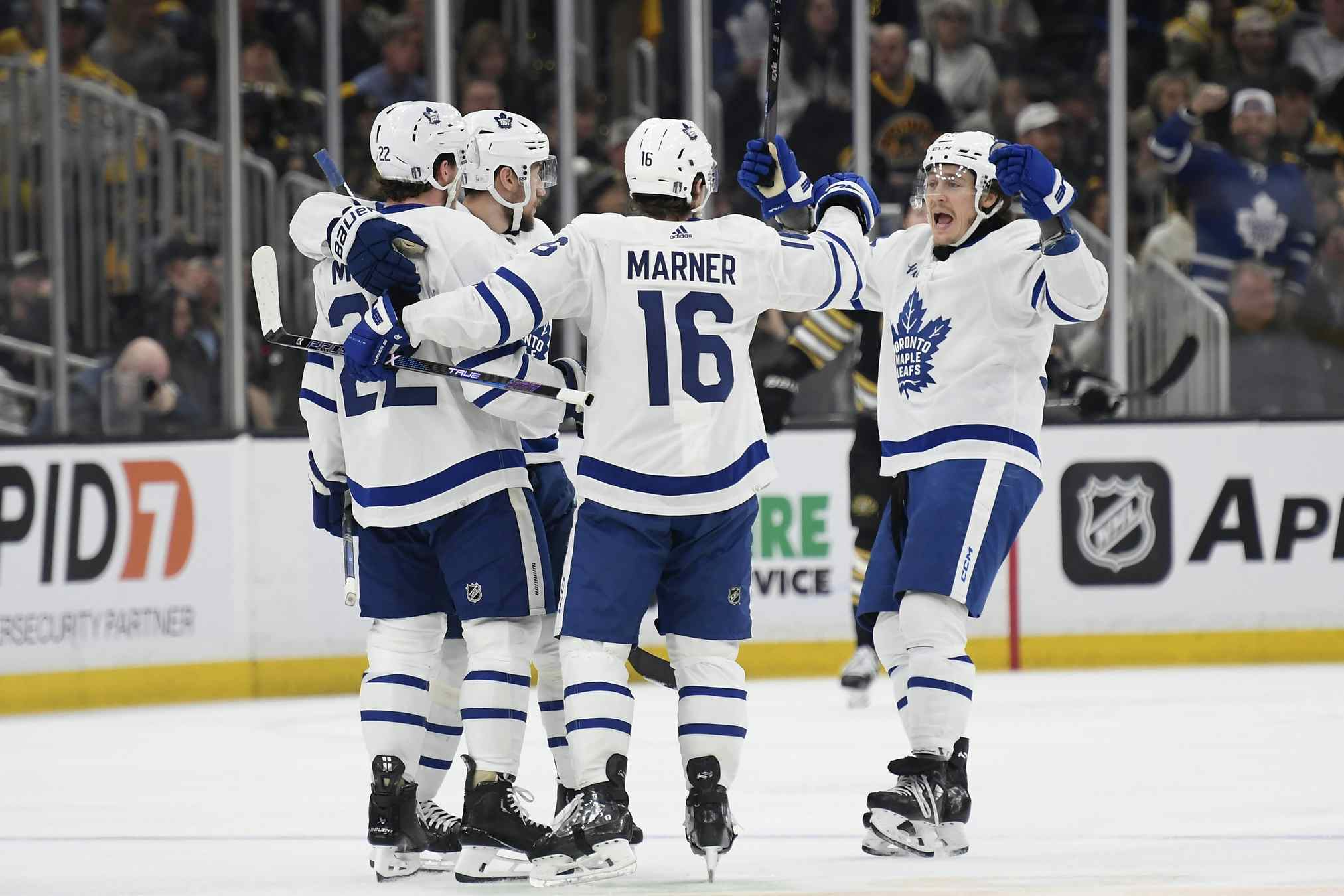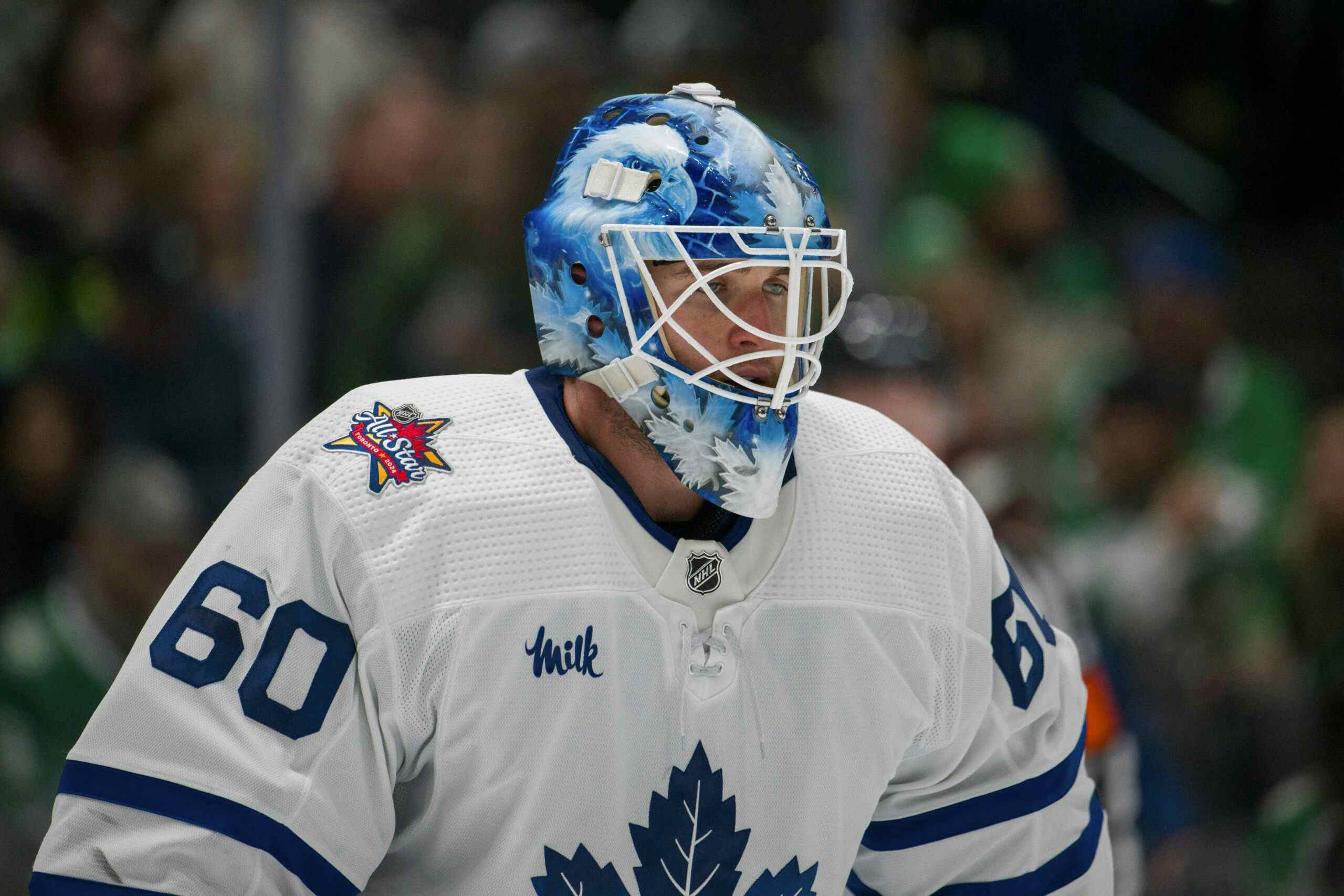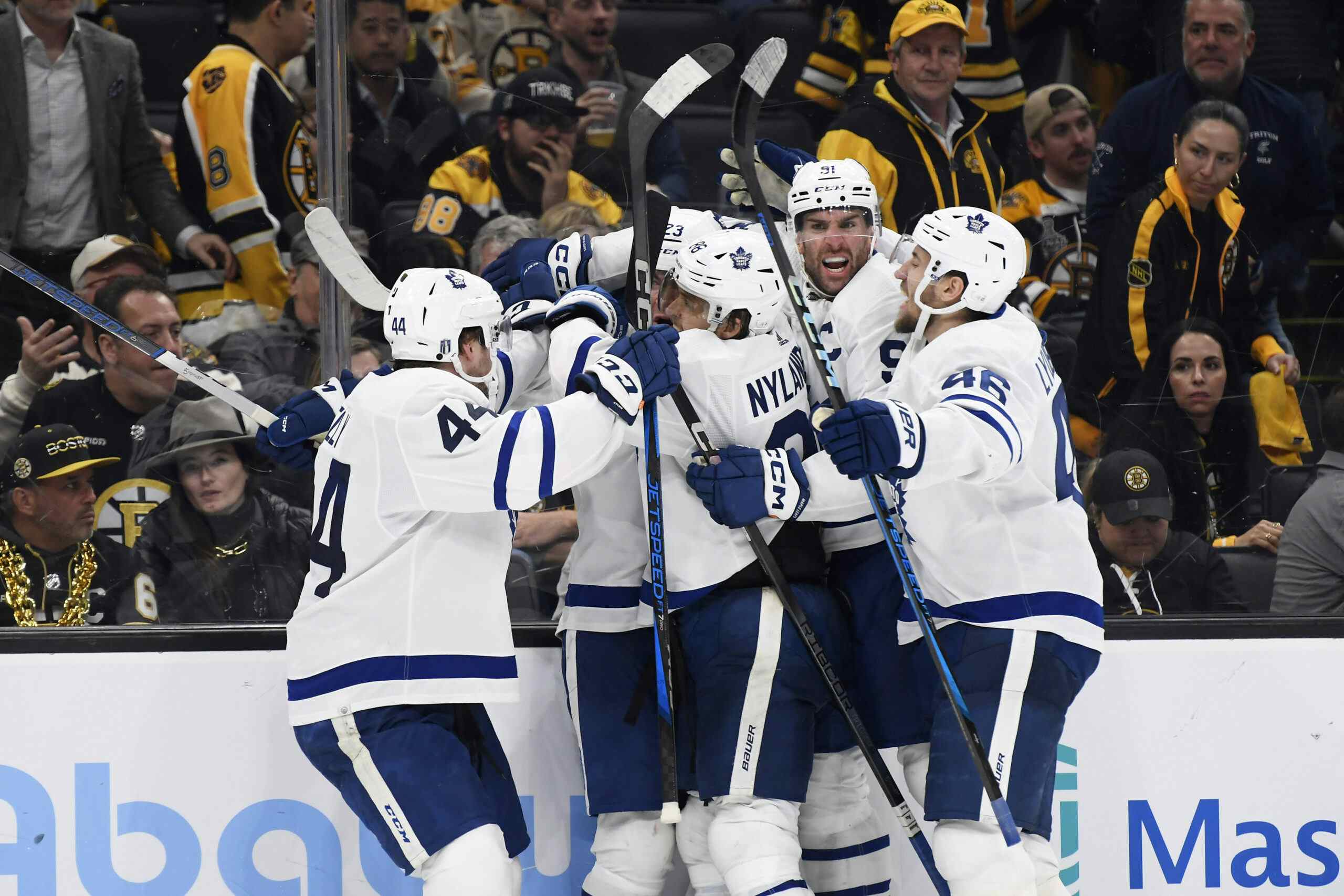Dallas Eakins heads to Edmonton

While no papers have been signed, it is believed by many in the hockey media that Dallas Eakins will be departing from the Toronto Marlies to become the new head coach of the Edmonton Oilers. Eakins was in, fittingly, Dallas while this news came out, for an interview with the Stars, but will officially sign on as early as tomorrow. This concludes a couple of weeks of speculation, that saw Eakins interview with Edmonton, Dallas, New York, Vancouver, and Colorado. Naturally, there’s some stuff to look at with a move like this.
Why Edmonton?
Simply put, while he wants a new challenge, he wants a familiar core. If he won’t get the same players by staying in the Leafs organization, he would prefer to be part of a young core. That’s where he has the bulk of his experience, and such a move allows him to grow with the team. A team that contains 7 players under 24 in its top 8 point getters (and exception to the rule Ales Hemsky rumoured to be on the way out) is a good place to start, especially as the team begins to bring up players from the Oklahoma City Barons, who the Marlies faced in the Western Conference Finals last year and have regular season familiarity with.
Elliotte Friedman pointed out on CBC last night that Eakins’ preferred teams were the Oilers and the Avalanche. Colorado’s vacancy one was superficial, as everybody knew Patrick Roy had dibs, but it’s not a shock that Eakins wanted to go there, for the same reasons. Plenty of youth on that roster, and he coached against their affiliate, the Lake Erie Monsters, approximately twelve thousand times a season. Important is this, is that hockey was his main concern; rumours that his model/actress wife would push him towards Vancouver or New York turned out to be nothing but hot air.
Worth nothing as well, is that this interest from Edmonton has been long term. While Dallas never confirmed it, it’s widely speculated that the Oilers were in hot persuit of him last year, leading to the Leafs hurrying on their extension of his contract. With the Leafs making the playoffs for the first time in nine years, one can assume Randy Carlyle is going to have free reign for the next few years. In Eakins’ position, as much as he seemed to enjoy Toronto, there’s no point in playing the waiting game any further if you feel ready to coach. The Oilers made it clear that they were willing to fire recently hired Ralph Krueger to make it happen, and the rest is history. Beyond that, the eyes have definitely been on him throughout the year. Oilers employees were possibly the most frequent other-team representatives at Ricoh Coliseum, and while Senior VP of Hockey Operations, new GM Craig MacTavish made a couple of visits of his own. It’s hard to scout a coach, but you get an idea of his story and what things stay the same as the team changes (the Marlies roster to start and end the season were very, very different).
What’s His Track Record?
Eakins started his coaching career as an assistant for Paul Maurice on the Marlies in 2005/06. When Maurice took Pat Quinn’s place with the Leafs the following here, he brought Eakins up with him. Dallas outlasted him with the big club, spending more year as an assistant with Ron Wilson before replacing Greg Gilbert as Marlies head coach after the 2008/09 season.
His first year was far from successful, setting all-time team lows in Wins, Goals, Goal Differential, and Powerplay Percentage, leading to the Marlies second worst season ever in Toronto. It’s not a situation you can entirely place on him (Andre Deveaux lead the team in points with 41, and not a single player who played more than half the season went on to be an NHL regular), but definitely not the result he was looking for. The next year brought a slightly better team to work with, and better results, still missing the playoffs but attaining his first winning record, and taking a -68 goal differential to a +9. With his previous year’s core retained and expanded on, 2011/12 saw the Marlies take flight, finishing second in the Western Conference with 96 points, and proceeding to win the conference before losing in the Calder Cup Finals. This year’s group, despite being picked apart by the return of the NHL in January, equaled the 96 point mark before getting eliminated in the second round to the Grand Rapids Griffins, who care currently up 2-0 in the Finals.
Eakins’ 2011/12 group set single-season team records in goals against (175). fewest PIM (1134), fewest powerplay goals allowed (37) Penalty Killing Percentage (88.1). The 2012/13 group ranks second in the first two stats, and the 2011/12 group ranks second in PPGA, 3rd in PK%. Both the 2010/11 and 2011/12 teams were ranked #1 in penalty killing, and the 2011/12 team allowed the fewest goals in the league.
All time, Eakins leads the Marlies in games coached (315) wins (157), points (355), goal differential (21) and penalty killing (84.5). His teams averaged the fewest goals against per season, best goal differential per year (even with the -68), fewest penalty minutes per year, and fewest times shorthanded (nearly 100 fewer than Gilbert’s roster, and over 200 fewer than Maurice’s season).
What Else Can The Oilers Expect?
As you can probably see, Eakins encourages defensive responsiblity, and likes to have his teams full of talent in the back end. In the three years where the team became more defensively successful, he’s been able to work with multiple solid goalies at the AHL level and beyond, including James Reimer, Ben Scrivens, Jussi Rynnas, Mark Owuya, and Drew MacIntyre (the final three remain to be seen if they’ll have NHL success). Rosters were usually filled with an abundance of defencemen that he would bring in and out of the lineup as the situation needed them.
Offensively, Eakins recognized the AHL’s lack of roster consistancy and avoided keeping constant lines, even when callups and injuries stayed silent. Beyond the wildly successful line of Jerry D’Amigo, Joe Colborne, and Joey Crabb that stayed together for nine games before Crabb was called up, I’m having trouble thinking of any other mainstays. He would have certain defaults that he the team was in need of a goal or had to shake things up, but wouldn’t let other teams rely on knowing what they were facing going into a game. Opening lines have been often known to be thrown out the window minutes into the first period. Also worth nothing, he’s had a tendency to run a five forward primary powerplay a few times, taking a dispersal guy with a good shot and letting them fire away. In the Marlies case, this was often Mike Zigomanis, on Edmonton, Jordan Eberle may see some time. To him, the concept of a 1/2/3/4 line system will fly out the window, with no shyness to dropping down a good player on a cold streak to a lesser role until he begins to contribute.
Two things that will aggravate Oilers fans but often proved themselves to make sense were his philosophy on timeouts and empty nets. Simply put, there’s no point in saving them in his eyes. Eakins would rather use a timeout to make up for an icing after a penalty kill six minutes into the game instead of a last-gasp effort with 45 seconds left. It’s an asset to him, rather than a fallout plan. As well, he’s not scared to pull the goalie really early if he sees it fit. Down by two with a powerplay with ten minutes left in the game? Six attackers. It’s bound to happen once or twice a season, and pulls closer to the clock but still rather early are common in games where the team is behind.
Beyond that, Eakins is a players coach. While people were panicking about Nazem Kadri’s extended time in the AHL, he made sure that he was motivated and upbeat while still having him get in better shape, improving his defensive game, and regaining that "edge" at the pro level. Kadri, applying everything he had learned under Eakins, broke out and was a near point-per-game player in his first full NHL season. When Joe Colborne decided to play through an injured wrist in 2011/12, Eakins recognized that he’d be struggling to produce and had him work on being a shutdown forward, which, while not his intended role, made him a better all-around player. Without that, he’s not a "pleasant defensive surprise" for the Leafs at the end of the Boston series this year. Players like Mark Fraser, Mike Kostka, and Korbinian Holzer all got significant NHL looks thanks to what they did under his system. Even at the lower scale, you have guys like Will Acton. When he joined the club on a tryout deal, I saw no chance of him sticking around in any pro level. Two years later, he’s the Marlies’ go-to shutdown centre, and while a longshot to make the NHL, there’s a possibility that he at least gets a game or two one day.
Eakins is the type that expects the best out of his players, addresses their flaws, but does so in a way that they know that he cares about their success just as much, if not more, than he does his own. He’s always in touch with his players, even the ones who move on to bigger things. Some coaches are win-attempting mercenaries with a strategy guide, and some mentor. Dallas lands in the latter bunch, which makes him perfect for an Oilers team with a lot of talent waiting to burst out. His NHL bosses? According to him, talks would happen daily, whether it was with a GM or a coach (sometimes both), always looking for ways to improve the team at both levels.
It’s not even just his players, either. A fitness enthusiast, you’ll frequently hear about him helping out or motivating people who work all over the organization to achieve their goals. If there’s some sort of way he can help the team’s success, on any end, on ice or off, he’ll do it. He’s not even shy to give the media advice. I remember a time where I was hanging out in the Ricoh media room pre-game, and the PR rep comes in with a bunch of printed out articles. He says they came courtesy of Dallas. I read them over, and they’re about how "talk to me about ____" questions aren’t good practice. I knew he wasn’t a fan of them as it was (his answers often being rather blunt, and often starting with "Listen.."), and it may be seen as a bit of him trying to make his own job easier, but you know what? It stuck, because it was a fair point. Those kind of questions are lazy, and from that point forward, though I never really ask much as it is, I made sure any scrum or interview I did with anyone had actual questions instead of putting a guy on the spot. He’d sometimes pick on the guys who never really showed up, was usually more than helpful to the frequent reporters, and didn’t really like my hair at one point. That stuff doesn’t matter towards on-ice results, but the but the key point? Having that drive and vision at all times can only be good for the actual team. He wants all his surroundings to strive to be better. For his own sake? A little. But you can tell that he’s genuinely into it as well.
And that’s why he’ll succeed at the NHL level. There’s no doubt in my mind that he’ll accept nothing but world class effort, motivation, and determination from his surroundings. Will it take some adjustment time? Probably. The organization is an old boys club, and the team is a daycare centre. But before he’s done, that team is going to do damage.
Who Replaces Him?
That’s the major question for Leafs fans right now. As it stands, I couldn’t tell you. Gord Dineen and Derek King are the current assistants, and one of them could step up. Maybe Scott Gordon or Greg Cronin follows in Eakins’ footsteps and goes from Leafs assistant to Marlies head. Darren Dreger has suggested that the team may find someone new entirely to grow with the team, mentioning Steve Spott, Ryan McGill, and Glen Gulutzan as options. Maybe a recently fired NHL head that’s out of work takes the role as his own reclamation project, like Maurice did at the start of this team’s existence in 2005? Steve Staios is a longshot There’s plenty of options, and lots of time to figure it out.
In Summation
Dallas Eakins has put in lots of time with the Leafs organization and on the Toronto Marlies, and produced some pretty impressive results. The farm system is in arguably the best shape it’s ever been in, prospects are developing more successfully and more well rounded. He’s a guy who cares about having everybody around him striving to improve. It would’ve been nice to see him stick around (I’d honestly rather have him up with the Leafs than Carlyle, but that’s a topic for another day), but the Oilers are the team that wanted him, the type of team he wanted to join, and probably a match made in heaven. I wish him only the best, and know that he’ll accept no less than that as he takes a once-great franchise and tries to bring them back to where they used to be.
Recent articles from Jeff Veillette




